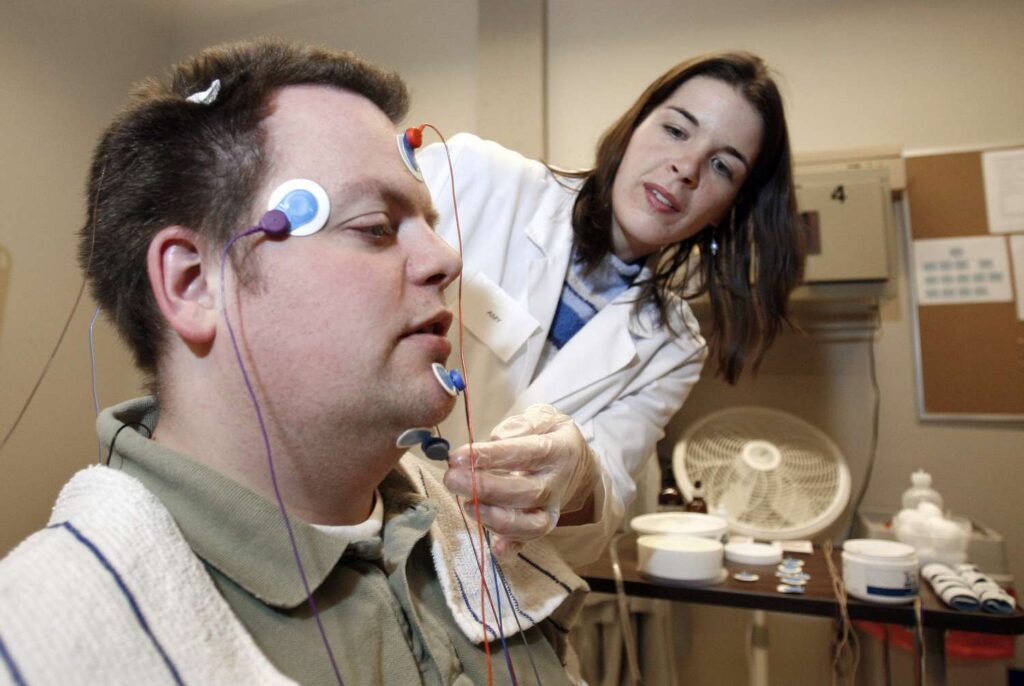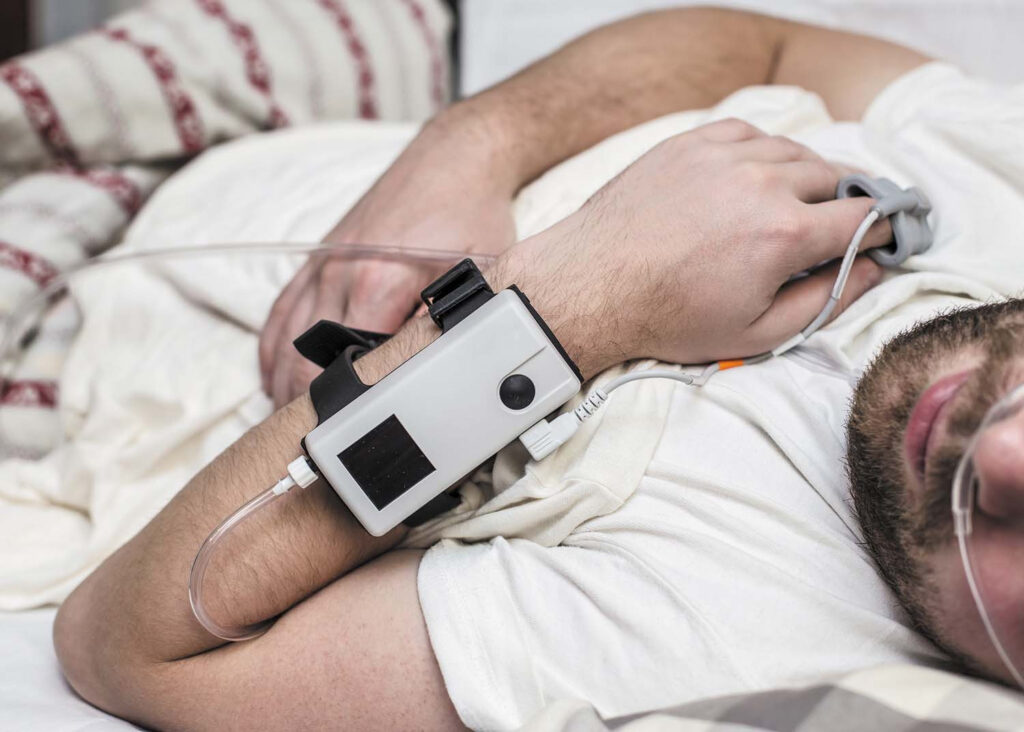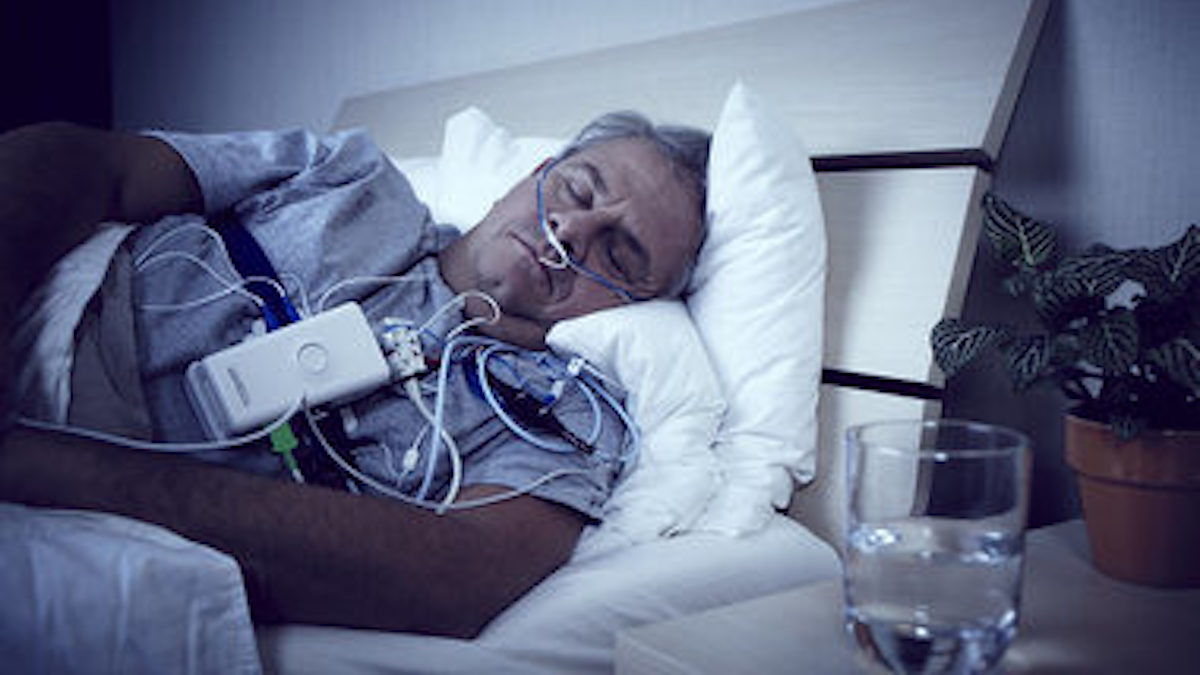Sleep plays a vital role in maintaining good health and well-being. However, sleep disorders are becoming increasingly common, affecting millions worldwide. To address such issues, healthcare providers often recommend sleep studies. Among the options available, a Level 3 sleep study is gaining popularity due to its convenience and effectiveness. This guide will walk you through everything you need to know about Level 3 sleep studies, from what they entail to how they can benefit you.
What Is a Level 3 Sleep Study?
A Level 3 sleep study is a diagnostic test conducted in the comfort of your own home. Unlike traditional in-lab studies, it involves portable equipment to monitor specific physiological parameters. It is designed to diagnose common sleep disorders such as obstructive sleep apnea (OSA).
This type of study measures variables like airflow, respiratory effort, heart rate, and oxygen saturation levels. With advancements in technology, a Level 3 sleep study offers a practical and less invasive alternative to lab-based testing.
Why Choose a Level 3 Sleep Study?
There are several reasons why individuals prefer a Level 3 sleep study:
- Convenience: It allows you to sleep in your own bed, providing more accurate insights into your typical sleep patterns.
- Cost-Effectiveness: A level 3 sleep study is generally more affordable than in-lab testing, making it a preferred choice for many patients.
- Accessibility: It is suitable for those living in remote areas or unable to visit a sleep clinic.
- Quick Results: With fewer sensors and simpler setup, results are often processed faster.
How Does a Level 3 Sleep Study Work?
Pre-Test Preparation
Before undergoing the test, your healthcare provider will explain how to use the equipment and prepare you for the procedure. You may be required to:
- Avoid caffeine or alcohol on the day of the test.
- Follow a regular sleep routine.
- Wear comfortable clothing during the study.
The Testing Process
The device used in a Level 3 sleep study is portable and user-friendly. It typically includes:
- A nasal cannula to monitor airflow.
- Chest and abdominal belts to track respiratory effort.
- A pulse oximeter to measure oxygen levels and heart rate.
Once the equipment is set up, you simply go to bed and sleep as you normally would. The device records data throughout the night, which is later analyzed by a sleep specialist. Click here for understanding sleep test costs.

Key Metrics Monitored During the Study
A Level 3 sleep study focuses on several critical metrics, including:
- Airflow: Assesses the quality of your breathing during sleep.
- Respiratory Effort: Tracks chest and abdominal movements to detect abnormalities.
- Oxygen Levels: Measures blood oxygen saturation to identify potential issues.
- Heart Rate: Monitors any irregularities that may be linked to sleep disorders.
Common Conditions Diagnosed Through a Level 3 Sleep Study
1. Obstructive Sleep Apnea (OSA)
OSA is one of the most commonly diagnosed conditions through a Level 3 sleep study. It occurs when the airway is blocked during sleep, leading to interrupted breathing.
2. Hypopnea Syndrome
This condition involves shallow breathing episodes that reduce oxygen levels, often leading to disrupted sleep.
3. Periodic Limb Movement Disorder (PLMD)
While not its primary focus, a Level 3 sleep study may provide insights into other sleep-related conditions, including PLMD.
Benefits of Home-Based Sleep Testing
A Level 3 sleep study offers numerous advantages, making it a preferred choice for both patients and healthcare providers:
- Comfort: Testing in your own environment eliminates the stress of unfamiliar surroundings.
- Affordability: A Level 3 sleep study is more budget-friendly than in-lab options.
- Efficiency: It simplifies the diagnostic process while maintaining high accuracy.
- Accessibility: Ideal for individuals with mobility issues or busy schedules.
Limitations of a Level 3 Sleep Study
While beneficial, this type of study has its limitations:
- It is not suitable for complex sleep disorders requiring more detailed analysis.
- The absence of a technician during testing may lead to errors in setup or usage.
- It focuses on limited parameters compared to in-lab studies.
For these reasons, it is essential to consult your healthcare provider to determine if a Level 3 sleep study is the right choice for you.

How to Save on Your Level 3 Sleep Study
1. Check Insurance Coverage
Many insurance providers cover a portion of the costs associated with a Level 3 sleep study. Verify your coverage and ask about in-network providers to reduce expenses.
2. Compare Costs
Prices for sleep studies can vary widely. Research local providers and compare their rates to find the best deal.
3. Use Flexible Spending Accounts (FSAs) or Health Savings Accounts (HSAs)
If you have an FSA or HSA, you can use these funds to cover the cost of your sleep study, saving you money.
What Happens After the Study?
Once the data is collected, it is analyzed by a sleep specialist. The results will help identify the presence and severity of any sleep disorder. Based on the findings, your doctor may recommend:
- Lifestyle changes such as weight loss or dietary adjustments.
- The use of Continuous Positive Airway Pressure (CPAP) therapy for OSA.
- Further testing or consultations with specialists.
FAQs About Level 3 Sleep Studies
1. Is a Level 3 Sleep Study Accurate?
Yes, when performed correctly, a Level 3 sleep study provides reliable data for diagnosing common sleep disorders.
2. Can I Move Around During the Test?
Yes, the equipment is designed to be lightweight and flexible, allowing for natural movement during sleep.
3. How Long Does It Take to Get Results?
Results are typically available within a few days, depending on the provider.
Conclusion
A Level 3 sleep study is an excellent option for diagnosing sleep disorders without the inconvenience of visiting a clinic. With its cost-effectiveness, ease of use, and accuracy, it offers a practical solution for those seeking answers about their sleep health.
If you’re considering this type of sleep test, consult your healthcare provider to determine if it aligns with your needs. Remember, understanding your sleep patterns is the first step toward improving your overall health and well-being.

